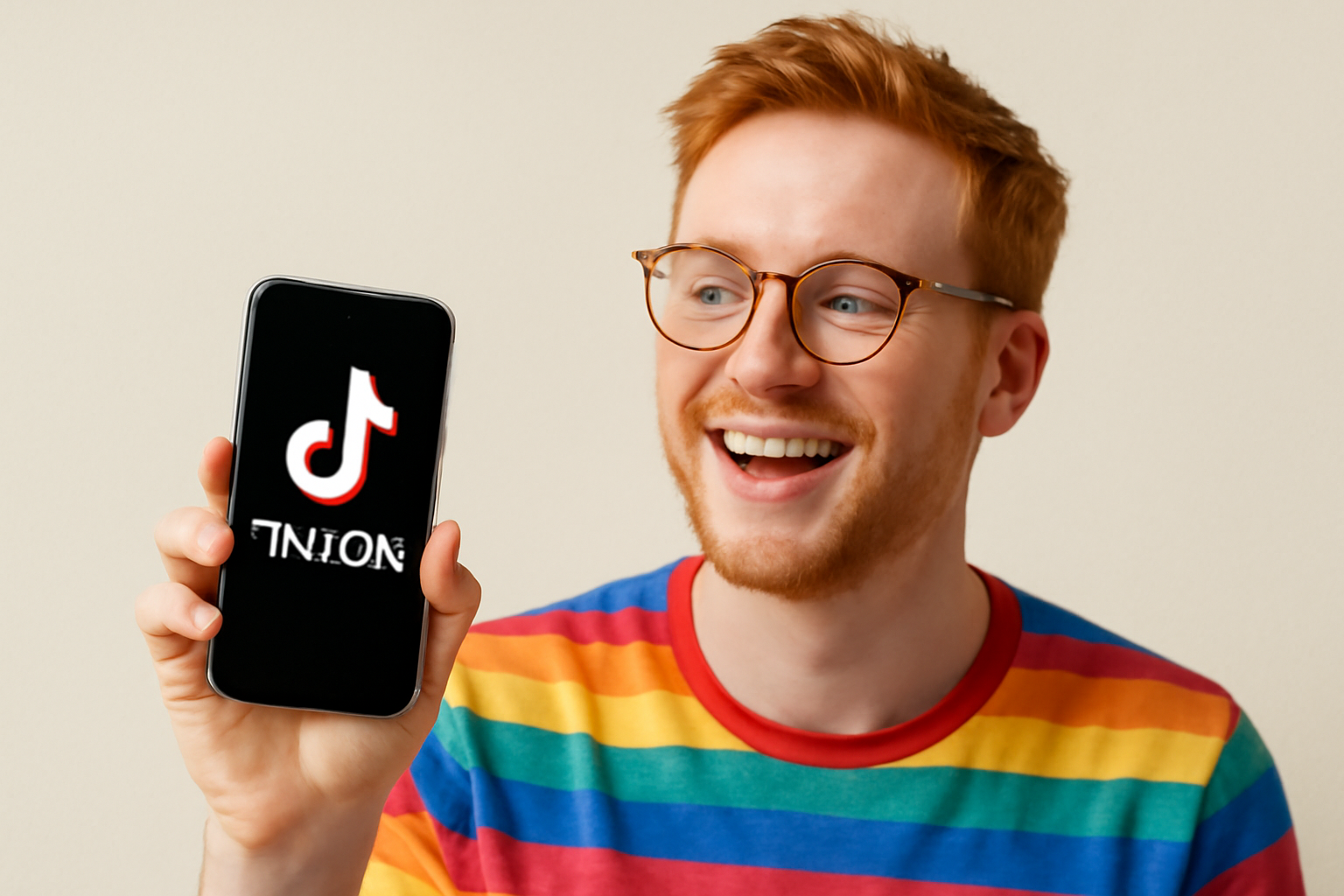
The popular video-sharing app TikTok, owned by the Chinese company ByteDance, is facing a potential ban in the United States, set to take effect on January 19. This potential ban has caused a stir among TikTok's 150 million monthly users in the US, including many from the LGBTQ+ community who use the platform to express themselves and connect with others.
The looming ban follows President Biden's signing of the Protecting Americans from Foreign Adversary Controlled Applications Act. This act was prompted by concerns from US intelligence officials who suggested that ByteDance might pose a security risk due to its ties to China, raising fears about the spread of pro-Chinese propaganda through the app. ByteDance was given a deadline to sell the app to an American company or face the ban.
In response to the impending ban, many US users have jokingly considered migrating to China or using similar China-based apps like Xiaohongshu, known as "RedNote" in English. This app quickly soared to the top of the App Store’s Top Free Apps chart, as reported by LGBTQ+ Nation.
LGBTQ+ Content Concerns with Chinese Platforms
While some users have jokingly proposed moving to China to continue using TikTok, many are wary of potential censorship on Chinese platforms. Concerns have been raised that Chinese apps may restrict LGBTQ+ content. The Advocate reported that at least one user, a "TikTok refugee," claimed she was banned from RedNote for mentioning "trans plight" in a video.
Despite these concerns, some users report no issues accessing LGBTQ+ content on RedNote. One user commented on Reddit that "There are tons of popular LGBT accounts" but warned that criticism of the Chinese government could lead to bans.
LGBTQ+ Rights in China
Given these concerns, it's important to understand the broader context of LGBTQ+ rights in China. While same-sex sexual activity has been legal since 1997 and homosexuality was declassified as a mental illness in 2001, significant legal protections and recognition are lacking.
Notably, same-sex marriage remains illegal in China despite attempts to challenge this in court. In 2016, a landmark case saw a gay couple, Sun Wenlin and Hu Mingliang, file a lawsuit for the right to marry, but it was rejected by the court. In lieu of marriage rights, a "legal guardianship" system introduced in 2017 allows adults to appoint guardians for personal and property matters. Some same-sex couples use this to provide legal protection for their partners.
Li Chenyang, an assistant director at a public notary office in Shanghai, noted that "one or two same-sex couples almost every month" apply for guardianship notarisation, as many LGBTQ+ individuals are estranged from biological families who do not accept their sexual orientation.
China lacks comprehensive anti-discrimination laws regarding sexual orientation or gender identity, leaving LGBTQ+ individuals vulnerable to discrimination in areas like employment, education, and healthcare. This lack of legal protection contributes to mental health struggles among LGBTQ+ youth in China. A 2019 survey revealed that 85% of LGBTQ+ students reported depression, and 40% had considered suicide.
Activism faces significant challenges as well. In 2020, Shanghai Pride, the longest-running LGBTQ+ celebration in China, was canceled due to local authority pressure. In 2021, a prominent LGBTQ+ advocacy group was shut down amidst fears of a governmental crackdown, and the social media platform WeChat began removing LGBTQ+ accounts.
Furthermore, the Chinese government has banned "sissy" men from TV, insisting that broadcasters promote "excellent Chinese traditional culture". This policy shift also affected video games with same-sex relationships, reflecting a conservative turn under President Xi Jinping’s leadership.
Most recently, in 2024, Shanghai's renowned lesbian bar Roxie closed after nine years, sparking speculation about increased governmental pressures and signaling a tightening political climate.
In conclusion, while the situation for LGBTQ+ people in the US might have its challenges, relocating to China might not be the ideal solution for those in the queer community missing TikTok. The social and legal environment in China presents significant obstacles for LGBTQ+ individuals.
Related Posts
Finding a Community in Unexpected Places: A Personal Journey Through Texas
On my latest business trip down in Texas, it felt like everything that could go wrong did. It all started with my flight from Los Angeles, which got hit with major delays. I ended up missing my connecting flight in Dallas, and it took a full day before I finally made it all weary and worn out in McAllen. I tried chalking it up as one those typical travel mishaps, but I couldn't help but wonder if [...]
Jonathan Bailey's 'Chic Glasses' Steal the Spotlight in Jurassic World Rebirth
Jonathan Bailey's fashion choice dazzles in Jurassic World Rebirth Fans can't wait any longer—the latest installment in our beloved Jurassic franchise, *Jurassic World Rebirth*, hits theaters soon. And guess what? It's not just about dinosaurs this time. Jonathan Bailey, whom we adore from *Bridgerton*, steps up as Dr. Henry Loomis, a charismatic paleontologist. But what's stealing his thunder? [...]
Martha Graham Cracker: A Night of Electrifying Drag Performance in Atlantic City
Experience a night like no other: Martha Graham Cracker's rock n' roll drag cabaret Get ready, because Martha Graham Cracker's about set Atlantic City's Anchor Rock Club on fire with her electrifying drag cabaret. With a voice that commands attention and a stage presence that's both vibrant and mesmerizing, she blends rock and roll with drag like nobody else. If you're itching a night jam-packed [...]